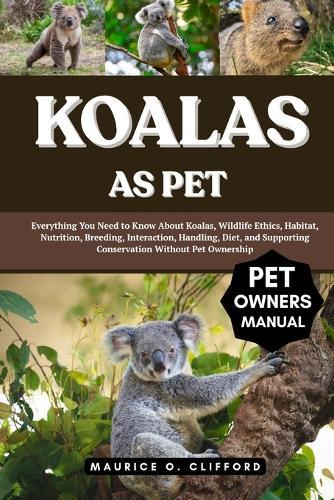Overview
Understanding the Iconic Marsupial and Its Natural Charm Koalas are among the most recognizable and beloved animals native to Australia. With their round, fuzzy ears, large black noses, and gentle-looking expressions, they have captivated people around the world. Despite often being referred to as ""koala bears,"" koalas are not bears at all-they are marsupials, a group of mammals best known for carrying and nurturing their young in pouches, like kangaroos and wombats. The koala is a symbol of Australia's unique wildlife. It lives primarily along the eastern and southeastern coasts of the continent, particularly in eucalyptus forests in Queensland, New South Wales, Victoria, and South Australia. These animals are arboreal, meaning they live in trees, and they spend most of their time resting in the branches of eucalyptus trees, where they find both shelter and food. What makes koalas so fascinating is not just their appearance, but also their lifestyle. They are highly specialized animals with very specific needs. Koalas eat almost exclusively eucalyptus leaves, which are toxic to most other animals. Their digestive system has evolved to detoxify the poisonous chemicals in eucalyptus and extract very little energy from it. As a result, koalas conserve energy by sleeping up to 18-22 hours a day. This slow-paced lifestyle is one reason they appear so calm and peaceful, which adds to their charm. Koalas are solitary and territorial creatures. Each koala typically maintains a home range that overlaps slightly with neighboring koalas, but they do not live in groups or packs. Males and females have different ranges and behaviors, and their interactions are usually limited to breeding seasons. While koalas are adored globally, they face numerous threats in the wild. Habitat destruction, climate change, bushfires, disease (such as chlamydia and koala retrovirus), and car accidents have led to a significant decline in their population. Conservation efforts are underway across Australia, but koalas remain classified as ""vulnerable"" in many areas. The idea of having a koala as a pet may seem appealing to some due to their docile appearance and gentle demeanor. However, these traits are the result of their biology, not their suitability for domestication. Understanding who koalas really are-their needs, their natural behavior, and their importance in the wild-is the first step toward appreciating them not as pets, but as wild animals that deserve protection and respect.
Full Product Details
Author: Maurice O Clifford
Publisher: Independently Published
Imprint: Independently Published
Dimensions:
Width: 15.20cm
, Height: 0.60cm
, Length: 22.90cm
Weight: 0.168kg
ISBN: 9798291400487
Pages: 118
Publication Date: 09 July 2025
Audience:
General/trade
,
General
Format: Paperback
Publisher's Status: Active
Availability: Available To Order

We have confirmation that this item is in stock with the supplier. It will be ordered in for you and dispatched immediately.



